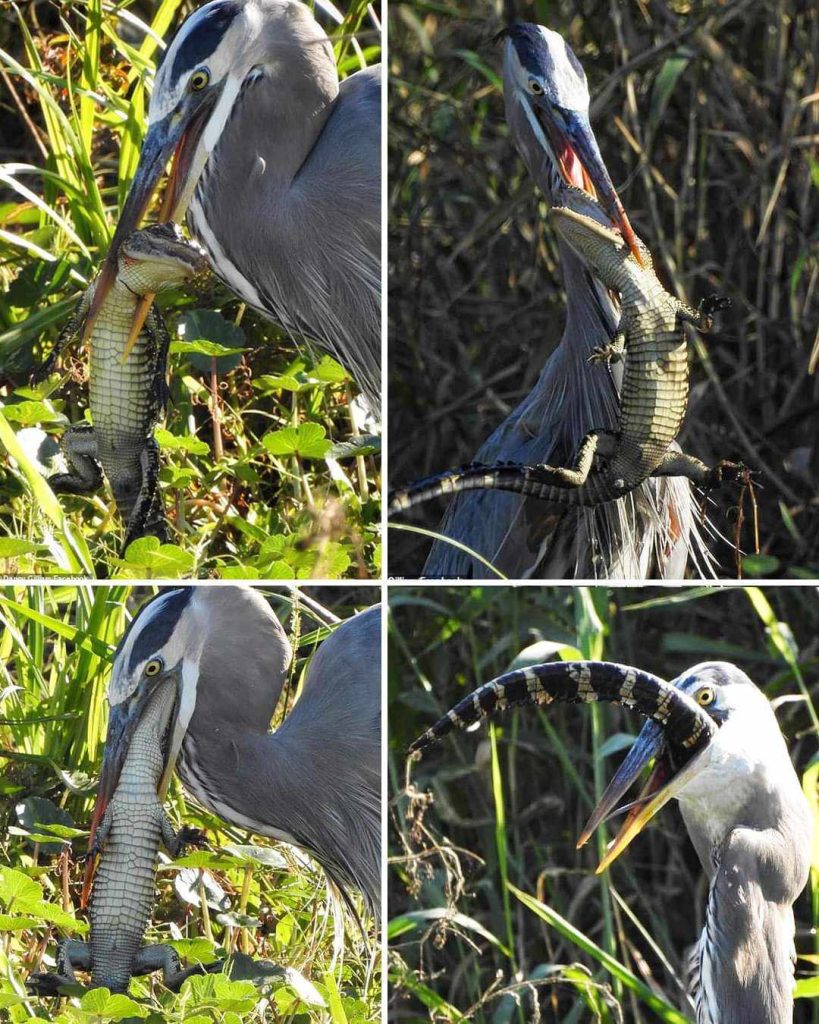Herons from the family Ardeidae are tall and striking birds with long necks and legs. There are actually some 64 species of herons if you also include egrets and bitterns from the same family. Living almost solely near coastal areas or freshwater, herons are expert hunters with a specialised diet, so what do herons eat?
Herons are carnivorous, bordering on piscivorous, meaning they almost solely eat fish. Other common food choices include crustaceans, amphibians, reptiles, molluscs, small mammals, small lizards and even small birds. Anyone with a fish pond might already know how efficient herons are at their job!
Whilst some herons are generalists, feeding on practically any meat they can hunt or forage, some are specialised and feed almost solely on fish or crustaceans. The Yellow-crowned night heron is one such heron that is exceptionally good at hunting (and digesting) crabs, crayfish and other crustaceans. Other herons, like the Boat-billed heron, have their own unique specialisms when it comes to poaching their quarry.
Herons have some pretty impressive tricks up their sleeves when it comes to hunting
What do herons eat in the wild?
Feeding primarily on fish and other animals, herons are carnivorous. Whilst fish is the dietary staple of most herons, they also feed on a wide range of crustaceans and amphibians. Other animals such as mammals, lizards and birds form a lesser portion of their diets, but herons are accomplished hunters and will target any valid prey that enters their hunting grounds.
The Grey heron, which is the most common species of heron, feeds primarily on fish when available. Some studies have revealed a diet of some 95% fish. Ducklings, frogs and toads are also common prey.
The Great Blue heron, common in the Americas, also feeds primarily on fish. Populations in Nova Scotia were found to consume some 98% flounders. In Idaho, however, diets included some 24% to 40% voles.
The Yellow-crowned heron is a crustacean specialist, feeding mainly on crabs and crayfish. It has developed techniques for smashing crustaceans apart on rocks and is excellent at digesting their hard exoskeletons, excreting them as pellets.
There are some herons that forage foods from the forest floor as well as in water, such as the Japanese night heron. The Japanese night heron eats a large proportion of worms and insects. The Australia Pied heron is another example of a heron that does not rely on fish, also consuming large volumes of insects.
What types of fish do herons eat?
Herons eat a huge variety of fish, ranging from large carp and bass to tiny minnows and goldfish. Some common varieties of fish eaten by herons include:
Breams
Mullet
Tilapia
Carp
Flounders
Sticklebacks
Gunnels
Sculpins
Perch
Minnows
Smelt
Gunnels
Goldfish
Grey Heron fishing in the water
Grey Heron fishing in the water
What do herons eat apart from fish?
Whilst some herons eat almost 100% fish, others eat barely any fish at all. Their habitats may not be inhabited by many – if any – fish. Herons are flexible carnivores that have been observed swallowing non-fish prey like turtles and rabbits whole.
Other foods that herons consume include:
Crustaceans, molluscs and other shellfish
Amphibians; frogs, toads and salamanders
Insects; both on land and in water
Worms
Birds; ducks, martins, woodcocks, plovers and gulls
Mammals; squirrels, rats, mice, rabbits and voles
Turtles
